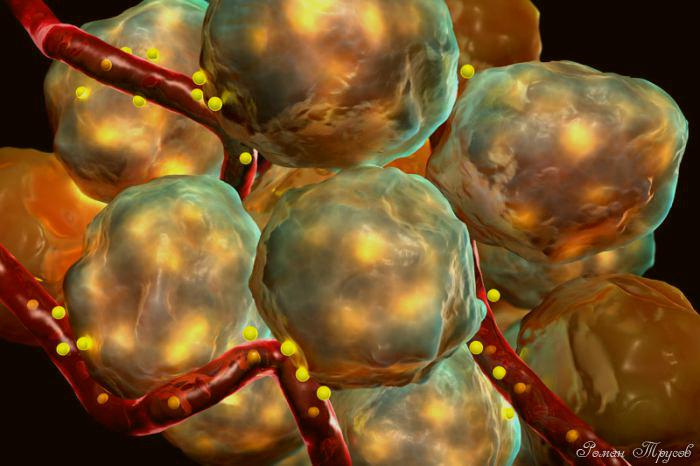Glucagon - the most important hormone of the pancreas, an organ of the digestive system. When injected into the blood tends to glucagon receptors, the liver cells, enters them into contact and activates the release of glucose into the bloodstream. He keeps it stable.
Description and norm
For normal operation, the central nervous system is necessary to maintain the concentration of glucose in the blood. It is responsible for this, and glucagon: it helps the formation of glucose by the liver and regulates its quantity. Also decays hormone stimulates lipid in adipose tissue, which lowers cholesterol. Glucagon helps in enhancing blood flow to the kidneys, liver cell regeneration, increasing intracellular calcium.
Normal values of the hormone in the human body varies depending on age. In children and adolescents (4-14 years) level should be between 0 and 148 pg / ml. The amount of glucagon in adults - from 20 to 100 pg / ml. Deviations from the norm can be accompanied by various diseases.
Glucagon and food
The concentration of glucose in the blood - a particularly important factor that controls the production of glucagon. To normalize the hormone level is recommended to use a sufficient amount of protein foods. Protein - a substance needed by the body, which consist of simple and complex and amino acids contain nitrogen.
Use of increasing amounts of proteins stimulates alanine and arginine amino acids and enhances the secretion of glucagon. Eat bread, cereals, beans, potatoes, milk, cheese, eggs, and vegetables and fruits. Of the meat dishes - beef, lamb, pork and rabbit. Be sure to diversify your diet fresh fruits and vegetables.
Aberration
Reduced levels of glucagon in the blood can indicate cystic fibrosis. It is a hereditary disease characterized by lesions of the glands that produce and secrete the blood and lymph, as well as a variety of disorders of the respiratory and digestive systems. Often lowering hormone causes chronic pancreatitis - inflammation of the pancreas. Low levels may also be diagnosed in patients after the removal of the body.
Excessive raising hormone levels may be indicative of diabetes, renal failure, liver cirrhosis, hypoglycemia (drop in blood sugar), and Cushing syndrome - condition of excessive amounts of hormones by the adrenal cortex.
